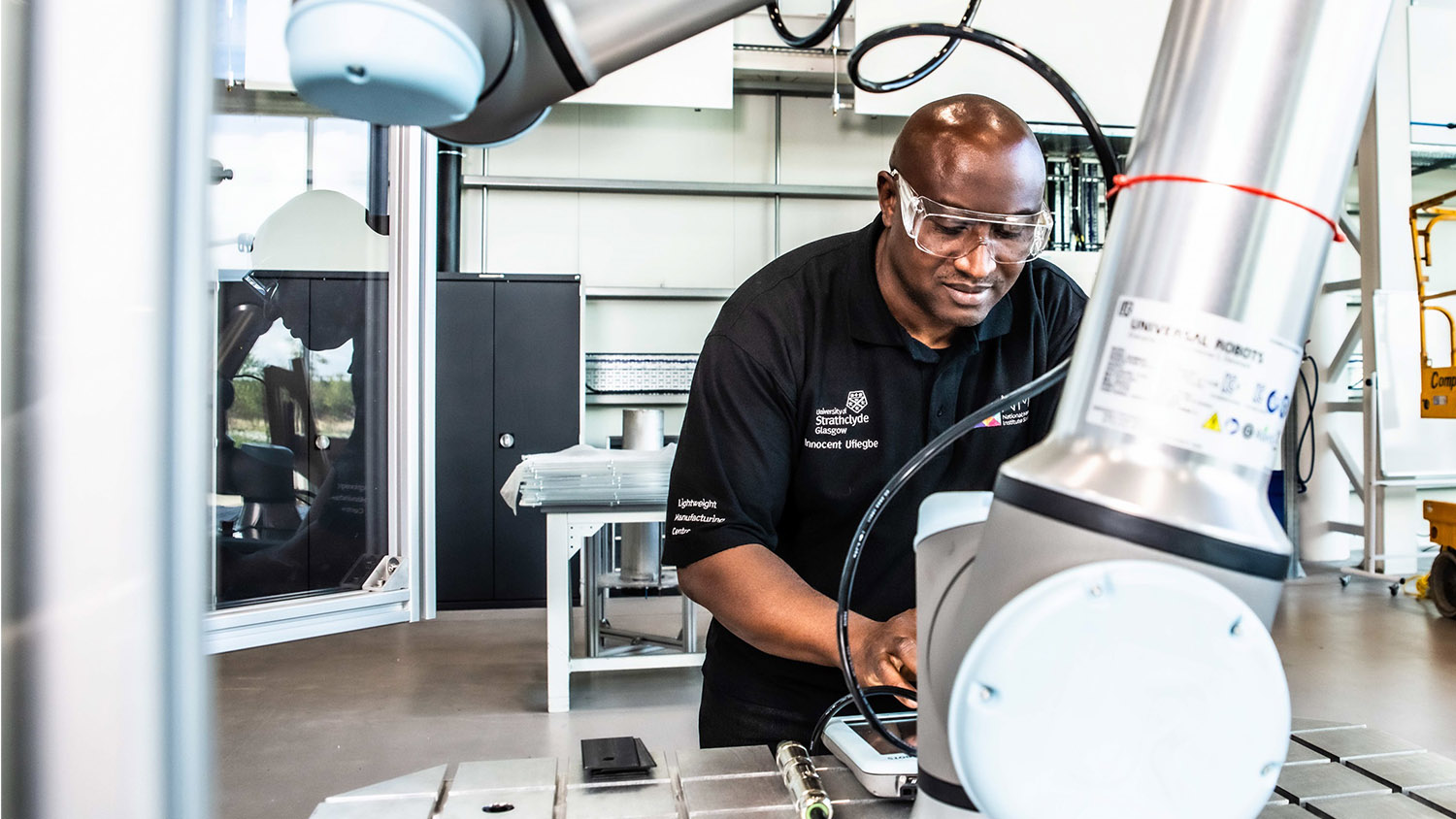A trio of manufacturing related research initiatives led by the National Manufacturing Institute Scotland (NMIS) have received a £14 million funding boost through Glasgow City Region Innovation Accelerator programme.
The three projects will accelerate productivity and sustainability across local manufacturing and engineering specialists, with smaller businesses working alongside partners including Boeing, SSE Renewables, Howden, Thales and Babcock. The projects are supported with £5.4 million from the UK Government and up to £8.6 million from industry partners.
One project, ReMake Glasgow, will see a first-of-its-kind national ReMake hub developed at NMIS’ flagship facility next to Glasgow Airport within the Advanced Manufacturing Innovation District Scotland. The hub will provide the skills and technologies needed to support ambitious manufacturers of all sizes to adopt circularity and extend the life of products and parts. Through processes such as remanufacturing, refurbishing and repairs, the aim is to achieve a 99% reduction in CO2 compared to manufacturing from new.
With under 2% of products manufactured in the UK currently designed and reused in this way, the ReMake hub represents a significant opportunity to transform production processes and support local companies to move towards a circular economy. The consortium is developing new ways to remanufacture high-value components with local SMEs in the region, and with consortium partners Howden – a Chart Industries Company, SSE Renewables, Renewable Parts, British Airways Maintenance Glasgow, Boeing in Glasgow and ATS Global.
Chris Courtney, CEO of the National Manufacturing Institute Scotland (NMIS), said: “These three projects will empower growing companies in the sector to boost productivity and sustainability, particularly at a local level.
“Working collaboratively across these strategic themes for next-generation manufacturing, will help companies position themselves at the forefront of data-driven, sustainable advanced manufacturing.
“By collaborating with leaders and research experts across the manufacturing, engineering and technology sectors, we can provide the workforce of today and tomorrow with the skills they need to make the next generation of greener products.
“Scotland has a vibrant innovation ecosystem and this is a vital opportunity to harness the momentum to future-proof the sector by tackling big challenges.”
The second NMIS led project, Data Driven Design and Manufacturing Colab (D3M_Colab), will explore the potential of data science to solve real-world manufacturing problems and boost productivity. It will upskill 300 local people with 100 hours of free training that includes a transformation project deployed within their workplace and ongoing support from NMIS experts and PhD students from the University of Strathclyde.
International defence company Babcock has extended its involvement in the programme. This follows two successful pilot cohorts in 2022 with more than 16 students from Rosyth participating and solving business data challenges ranging from optimisation of manufacturing processes, accurate reporting of engineering maturity and deeper understanding of workforce demographics.
Meanwhile, the third initiative, named Stratellite, led by the NMIS Lightweight Manufacturing Centre (LMC) taps into Scotland’s growing satellite manufacturing sector and focuses on an innovative reconfigurable, modular, and scalable production system developed by the LMC.
Working with Thales, it aims to automate the precision production processes necessary for the manufacture of large satellites. The team from the LMC will also develop the technology so that it is applicable for smaller businesses across a range of sectors to help them become more agile and explore making new products in new markets without a large upfront investment.
The projects are funded by the Glasgow City Region Innovation Accelerator programme with additional contributions from project partners. Led by Innovate UK on behalf of UK Research and Innovation, the pilot Innovation Accelerator programme is investing £100 million in 26 transformative R&D projects to accelerate the growth of three high-potential innovation clusters – Glasgow City Region, Greater Manchester and West Midlands.
